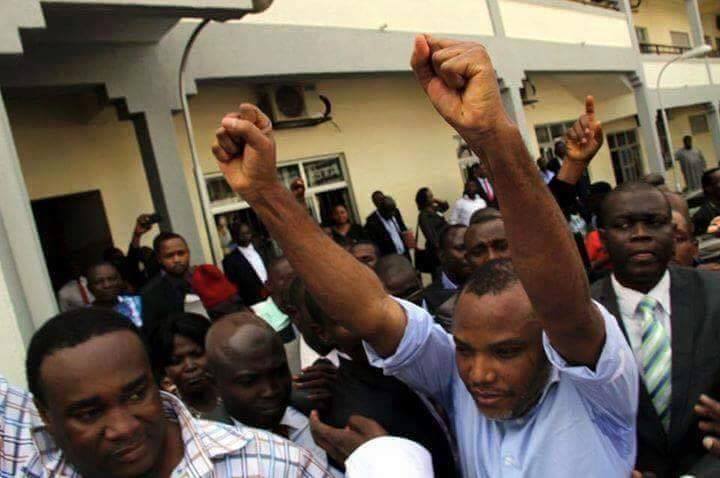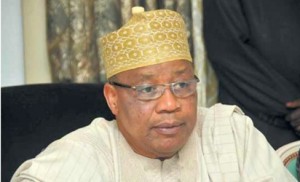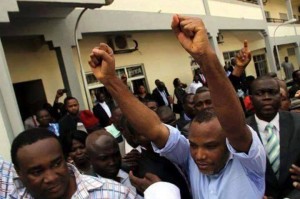


By Kelechi Isiodu
Ever since we noticed a week or two ago, when a former military president of the country spoke of the readiness of this country to consider restructuring and its suitability to its development, something has been nagging me. The former president was not alone – both holders of political office and aspirants alike have all been having a go at describing what sort of restructure they want. Some say restructure is ‘fiscal federalism’. Others yet – ‘true federalism’.
What then is ‘restructuring’ in the Nigerian context? Nobody quite knows.
If you missed Reuben Abati’s article for THISDAY on July 4, 2017, then go read it, it is a good read. He, like me, has noticed that ‘restructuring’ for some reason now seems ‘resurgent’ and although he starts out owning this in his article, he was no closer to the meaning of what restructuring might entail for Nigerians in the end, than when he began his article. I think he missed the occasion a bit and ended his article decrying the popularity of one Nnamdi Kanu mainly; with a caution or advice thrown in for the current leaders of the Nigerian administration to consult the right persons. He further advised the government to do something– about the national question – hold talks on restructuring?
But what is it? That former military president’s comments were better in my view, than Reuben’s article for he at least gave some ideas along the lines of what restructuring might mean.
Let’s hear him:
__________ <beginning of citation>
It is our collective responsibilities to engender a reform that would be realistic and in sync with modern best practices. For example, restructuring has become a national appeal as we speak, whose time has come. I will strongly advocate for devolution of powers to the extent that more responsibilities be given to the states while the Federal Government is vested with the responsibility to oversee our foreign policy, defence, and economy. Even the idea of having Federal Roads in towns and cities has become outdated and urgently needs revisiting.
That means we need to tinker with our Constitution to accommodate new thoughts that will strengthen our nationality.
Restructuring and devolution of powers will certainly not provide all the answers to our developmental challenges; it will help reposition our mindset as we generate new ideas and initiatives that would make our union worthwhile.
The talk to have the country restructured means that Nigerians are agreed on our unity in diversity; but that we should strengthen our structures to make the union more functional, based on comparative advantages.
_______ <end citation>
He said other things as quoted by the Vanguard Newspapers of Tuesday, June 27, 2017; he even veered into the idea of States having their own Police Forces and what nought. He reasoned that state governors would not misuse such ‘private’ forces because there was a greater tendency among the citizenry of these states to interrogate power. Really? I had to stifle laughter at that one. We will soon go from sit-tight presidents to sit-tight governors.
However, good on the former military president. He gave the usual nice mellow talking points of politics now the trademark of politicians everywhere on the planet. A sop deployed between the lived reality of people and the hard, visceral concerns that drive that daily reality on the one hand, and the alternative reality of the same well-to-do politicians; who as Reuben joked in his article, earn as, and where they please and have a wide assortment of holiday and shopping choices— Dubai, UK – wherever. Whatever!
Yet, considerations of ‘structure’ are considerations of how things are put together—a question of the interrelation between parts in a complex entity. And that is the crux of this matter, the entity itself leads the question and any attempts to restructure a thing without considering the entity itself firstly in fundamental ways in its whole entirety will beg the question, ultimately.
Nigeria is that entity of our idioms. It is a bad entity. Its foundation is faulty. Its institutions are flawed and its constitution as currently bequeathed is a death trap.
If you find that a foundation is faulty – as we are contending, you dig it up. Since institutions are flawed, as we are contending, they are ready for the scrap heap or for recycling. As the current Constitution is a snare and a trap, you spring it and let the entrapped persons, objects or arrangements become free. This is the meaning of the restructure that voices like Tony Nnadi of the Lower Niger Congress have been wont to articulate from time to time in the popular presses.
Even a figure like Nnamdi Kanu (to return to him) goes back to the foundations of this country from time to time, in the glorious demagoguery of his speeches.
Nigeria is fraught with problems he says. It was created by the British as a ‘Balance of Payments’ toy. A colony to profit from. A racket – nothing more. It was company-men-capitalists employing Maxim guns that cobbled it all together. From its inception, the British described it as a mixture of oil and water, referring to the schism between the two cultures of North and South. One, Muslim and near hegemonic beneath its Emirates, the other Animist, Pagan and Christian, incurably fractious and wonderfully heterogeneous.
And there was some racism to boot.
‘Can you, as a black man waltz into any of the countries of Europe and mandate their composite tribes, ethnic nations or any other persons in a fashion as to say: ‘You, you, you too and you – you are now a country together and you shall be called _____’? Well, if this analogy is understood, that really is the structure you are confronted with in Nigeria. So, as our contention is – the problem is complex. The structure itself is the problem.
You must admit it, Nnamdi has a point.
Now whenever somebody employs reason as Nnamdi does with questions like this, and they are from this part of the world they are suddenly called every bad name there is, from: jingoist to secessionist.
But, this betrays an old way of thinking about the world. Nnamdi is leading his people and (I am one of them) to consider questions of self-determination. Biafra, which Nnamdi champions; with hindsight and the benefits of a known history, WAS also an attempt at self-determination.
The time has come, for questions of this nature to be allowed their heads. If we must keep in sync with modern best practices as the former military president avers, then it is time to admit the idea of referendums on national questions to any tables where the structure of Nigeria is considered or reconsidered. That is, it, I think. Restructure through Referendums. It might even be what Nnamdi means.
. Isiodu wrote for the EM, a think thank of Nigerians from around the world.









